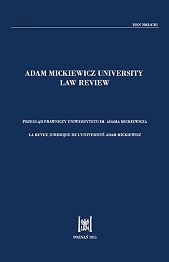Reconciliation Processes In Rwanda. The Importance of Tradition and Culture for Transitional Justice
Reconciliation Processes In Rwanda. The Importance of Tradition and Culture for Transitional Justice
Author(s): Małgorzata MylSubject(s): Cultural Anthropology / Ethnology, Culture and social structure , Sociology of Law
Published by: Uniwersytet Adama Mickiewicza
Keywords: Rwanda; reconciliation; gacaca courts; umuganda; reconciliation villages;
Summary/Abstract: In 1994, Rwanda suffered one of the worst genocides in history. It is estimated that up to 1,000,000 people were killed in the 100 days of mass slaughter. In 2019, 25 years after the atrocities, Rwanda and Rwandans are still involved in transitional processes aimed at rebuilding the country, handling the past crimes and, ultimately, achieving reconciliation. In the first part of the paper the significance of the reconciliation is elaborated. Reconciliation is often presumed to be one of the main goals for transitional justice and an essential element for rebuilding peace and security in post-conflict countries. It is also the process during which victims and perpetrators attain or restore a relationship and heal their trauma. In the second part of the paper, the importance of local tradition and cultures for transitional justice is discussed. The attention is paid to gacaca courts, reconciliation villages and umuganda, and to their roles in achieving reconciliation in Rwanda.
Journal: Przegląd Prawniczy Uniwersytetu im. Adama Mickiewicza
- Issue Year: 2020
- Issue No: 11
- Page Range: 81-98
- Page Count: 18
- Language: English

